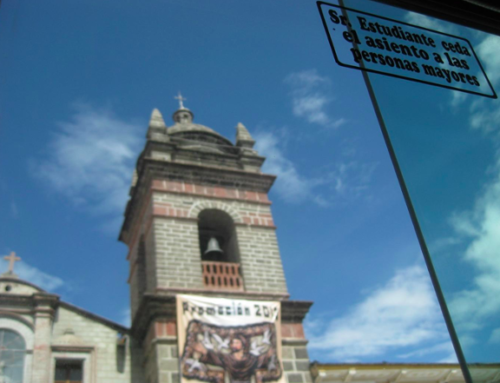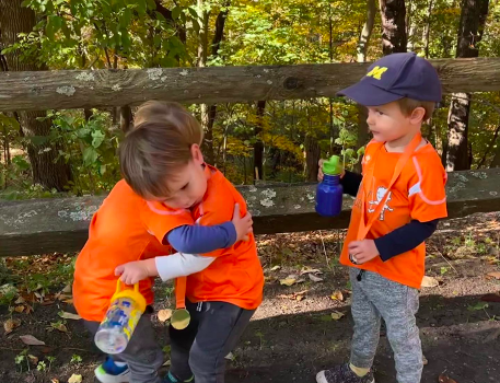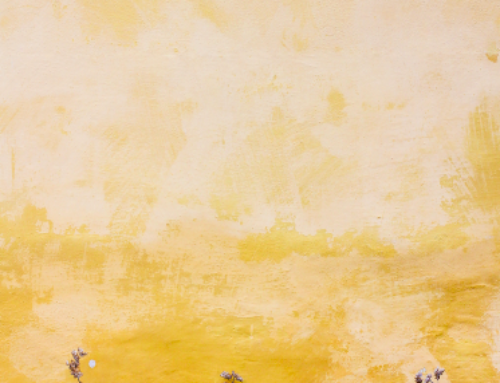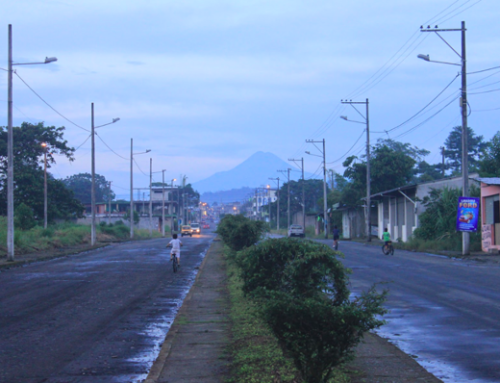It seems a truism that family is a fundamental and complicated site of care. So what might renewed attention to family have to offer this forum’s provocation of “caring in an unsettling world”?
Since David Schneider’s critique of the universal nuclear family, new kinship studies have upended the “naturalness” of kinship and destabilized modern categories of biology and nature, leading to nuanced discussions of care and relatedness (Cannell and McKinnon 2013; Carsten 2000; Delaney 2019; Franklin and McKinnon 2001; Strathern 2005). But what if we go further? In this short piece, I center how karmic relations are expanded across overlapping timescapes, and examine how they destabilize the singularity of “nature” both temporally and materially. I then offer the notion of “family as a way of knowing” through an exploration of what constitutes family, care, and knowing in some Thai contexts. In particular, I foreground ever-present and multi-directional relationality. Doing so presents ethnographically grounded possibilities for a care-based epistemology that is rooted in a presumption of fundamental precarity amidst constant change.
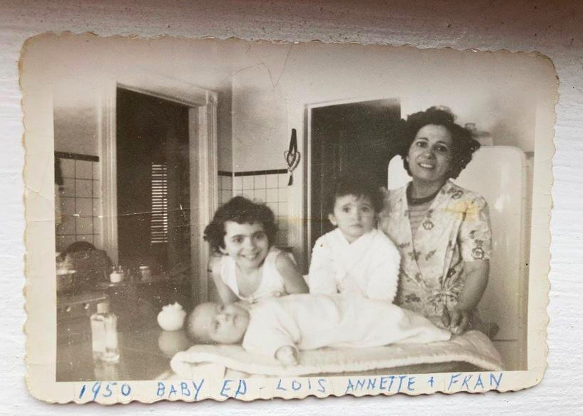
Mom and kids in 1950, from the Ippolito family archives. Photo credit: Felicity Aulino with permission from the Ippolito family.
What counts as family? I can say with some personal clarity that my kids are my family. My son and I, as it happens, are so similar: sensitive, emotive, and very dramatic with one another. He is just 8-years-old, but we sometimes hurt one another with our theatrics. On one such occasion, when he was about 6, I huffed out of the house to blow off steam with a walk in the woods.
Acting the diligent anthropologist, I took my walk as an opportunity to relisten to an interview from my fieldwork, and it unexpectedly spoke to me and my family in that moment. The interview was with Gina (a pseudonym), a 42-year-old woman from rural northern Thailand. We spoke in 2017 for about three and a half hours as part of the Mind & Spirit Project. Lovely in every way, Gina welcomed my battery of questions and was forthcoming about the details of her meditation practice, her various caregiving roles, and some of her stunning experiences with ghosts and spiritual energies.
As part of our conversation, I asked Gina if she had ever confronted a jaogamnaiwaen (เจ้ากรรมนายเวร), what some translate as an enemy from a former life. People say this type of karma can take material form in a multitude of manifestations, from a tumor or pain inside your own body to a person you interact with in your life. And indeed, she said, she believes her daughter is a jaogamnaiwaen.
As I relistened to this interview in the woods, I was so grateful for having had the presence of mind to ask Gina what she did with the belief that her kid is a jaogamnaiwaen. Because, honestly, I could also relate to the feeling at that moment, like my son held a past-life grudge against me! Orienting to her daughter as a jaogamnaiwaen, Gina said, allowed her to see her obligations to care for her daughter in a larger frame, where her care acts helped her rid herself of karmic burdens. This view did not limit their relationship to being only one of karmic burden. But it did encourage Gina to keep her cool, to greet her child with equanimity, to love and make merit for this person to whom she was beholden, in a way that did not further sow seeds of karmic debt. This was her kin and more-than-kin at the same time.
Amidst generational patterns and the felt force of obligations, family invites a way of knowing. So does the orientation of past life karma. And they can operate at the same time. Indeed, perhaps they are more similar than I can give them credit for here. Gina’s daughter is at once her daughter and a karmic burden manifest from previous life actions.
But perhaps, as my other Thai interlocutors would say, Gina might only “believe” this 60 percent or so. I am not suggesting that Gina is committing to a propositional claim or professing full faith (for an in-depth discussion of the ontological pluralism that “believing” can indicate, see Aulino 2022). And just to be clear, jaogamnaiwaen is not synonymous with family here. But I offer this example to grapple with the karmic dimensions of kinship and care, to show how cause and effect entangle people across lifetimes. Indeed, family is not just the sum of current blood and marriage relatives. As my friend Cheewintha Boonlong recently surmised, when I pressed her to consider past-life entanglements, “once family, always family” (personal communication). This rings true. And not. Called-family-but-not-family also fits circulating logics. Could-be-family resonates as well. And not. Family is a site where overlapping and contradicting truths are held with ease and simultaneity.
Common Thai pronouns reflect the ontological pluralism evident in family here, too, and this multiplicity has ramifications for relations and for care. In Thai language, there is ubiquitous use of kinship terms as pronouns in everyday interactions between non-blood relatives. People rarely use “I” and “you,” formal first and second pronouns, and instead choose an appropriate kinship marker for interactions. You call a shopkeeper auntie. Your neighbor, uncle, or grandma. Your professor, maybe even mother. Familial pronouns are constantly deployed as markers of respect and politeness, sometimes expressions of genuine affection, often tools of social maneuvering. People are constantly scanning their environment for cues in order to utilize the correct relational term when referring to themselves (the “I” or first-person pronoun choice) and their interlocutors (second- and third-pronoun choice). Yes, these engage social markers of prestige and circulating power structures, just as similar practices elsewhere in the world do. Pronouns pull people into familial relations in casual communication all the time, even if just temporarily. What would happen to anthropological analyses if we understand such naming as more than just instances of “fictive” kinship or modes of politeness, and more fully as modes of knowing and caring?
The potential for family relatedness across lifetimes and spirit worlds may help destabilize both the presumed singular nature of the world and the “axiomatic structures of liberalism” that dominate the philosophical traditions from which anthropologists tend to draw (Dalmiya 2016, 3). Feminist comparative philosopher Vrinda Dalmiya names “independent autonomy, abstraction, universality, and impartiality” as the leading components of western folk traditions that keep knowing and caring distinct (ibid., 3). Perhaps these need not be separate. Indeed, Dalmiya calls for a new way of legitimized knowing, for a care-based epistemology.
With this (quick) example of jaogamnaiwaen, I want to tease access to such a kind of knowing. Mapping kin relationships across time and across material/immaterial divides may be useful for thinking about the ambiguities of familial care as a way of knowing. We might, for instance, appreciate from Gina’s story how relations and their outcomes are always uncertain. Is this mother getting a chance to rectify past wrongs? Or is she just carrying out the day-to-day care of her child? The moral calculus of family situations is necessarily opaque. And perhaps that is just it: uncertainty can be anathema to our academic knowledge systems.
In my book, Rituals of Care: Karmic Politics in an Aging Thailand, I define care simply as “providing for others.” This invites ethnographic exploration of what counts as providing adequately, and for whom, in different contexts. In this work, I sought to dislodge pervasive associations linking sincerity and good care, a tendency that has allowed particular lineages of physical and psychological care, heavily influenced by the Protestant Reformation, to masquerade as universal touchstones in anthropological care theory. By homing in on repetitive embodied actions—at bedsides as well as in board meetings, between individuals and within groups—I traced the social training of awareness toward other ritualized forms of care, based in other philosophical traditions, along with the lived experience and political consequences that result from such habituated attention to the world.
I am continuing that orientation to care here. For Gina, providing for family included her daughter and more-than-her-daughter too. Jaogamnaiewaen pull families into other worlds and other webs of meaning that do not necessarily overlap, intersect, or replace each other. They simply invite a simultaneity that we sometimes deny in our anthropological analyses of meaning and assertions of relations. Indeed, I do not see this type of multiplicity represented in most academic writing about kinship or care, but it appears very commonly in Thai social worlds.
Family can be tough. To know and to be guided by family knowing can put people into tricky situations. What’s more, and sometimes most clear in family situations: forms of care can do violence, and violence can also be felt as care (Arnold and Aulino 2021). Habits of action in public and private spaces can continually reproduce power structures that directly harm us or that we ourselves, ironically, are explicitly attempting to dismantle. And yet, we rely on these norms, feel cared for by them, and care for others under their frameworks. So I am not trying to say we just need to see everyone as kin and life will be more “caring.” (Indeed, exclusions may be all the more violent when everyone is potentially family.) I am simply trying to center different sensibilities about family. Doing so in Thai contexts opens up both epistemological and ontological orientations that guide action and feeling, and that contour care. I do this in recognition of the omnivorous force of dominant knowledge systems as part and parcel of imperialism and colonial encounters, and the potential ironies of trying to know and care in other ways.
Philosophical lineages related to Thai traditions suggest themselves to be what Maria Heim (2014) calls “moral phenomenology,” a training of awareness that does not presume to track the world as it necessarily is, but rather suggests a mode of understanding reality in order to alleviate suffering. I find a sense of political possibility here, too. It may be cliché to say, but Thailand was never colonized by an outside power. And while this is and is not true, could it be that there are ways of knowing circulating in contemporary Thai social worlds that have escaped some of the choke holds of colonialism? And/or could it be that these ways of knowing can help others maneuver amidst imperialisms?
If family is a way of knowing, if it constitutes a kind of care-based epistemology, then perhaps it reveals how all epistemologies are a kind of moral training of awareness, with some posing as pathways to universal truth. With expanded attention to family and care in these ways, we can appreciate ever more clearly how social worlds teach people various ways of showing up and providing for others in an unsettling world, amidst pain and inequity, despite the contradictions otherwise faced at every turn. Perhaps from here we can choose a political project of knowing differently, which recognizes the power of uncertainty, of the ability not to know.
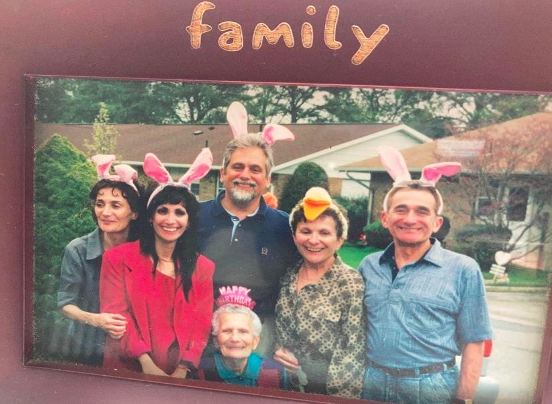
The family nearly fifty years later, from the Ippolito family archives. Photo credit: Felicity Aulino with permission from the Ippolito family.
References
Arnold, Lynnette, and Felicity Aulino. 2021. “A Call to Care.” Anthropology News (blog). June 23. https://www.anthropology-news.org/articles/a-call-to-care/.
Aulino, Felicity. 2019. Rituals of Care: Karmic Politics in an Aging Thailand. Ithaca: Cornell University Press.
Aulino, Felicity. 2022. “Believe It and/or Not: Opening up to Ontological Pluralities in Northern Thailand.” Anthropological Theory 22 (2): 222–246.
Cannell, Fenella, and Susan McKinnon. 2013. Vital Relations: Modernity and the Persistent Life of Kinship. School for Advanced Research Press.
Carsten, Janet, ed. Cultures of Relatedness: New Approaches to the Study of Kinship. 2000. Cambridge University Press.
Dalmiya, Vrinda. 2016. Caring to Know: Comparative Care Ethics, Feminist Epistemology, and the Mahābhārata. Oxford University Press.
Delaney, Carol. 2019. “The Seeds of Kinship Theory.” In The Cambridge Handbook of Kinship, edited by Sandra Bamford, 37–50. Cambridge University Press.
Franklin, Sarah, and Susan McKinnon (eds.) 2021. Relative Values: Reconfiguring Kinship Studies. Duke University Press.
Heim, Maria. 2014. The Forerunner of All Things: Buddhaghosa on Mind, Intention, and Agency. Oxford University Press.
Strathern, Marilyn. 2005. Kinship, Law and the Unexpected: Relatives Are Always a Surprise. Cambridge University Press.
Felicity Aulino is a Five-College Associate Professor based at the University of Massachusetts, Amherst.
